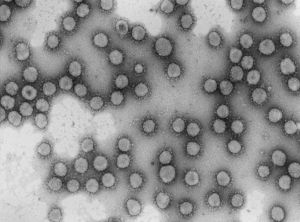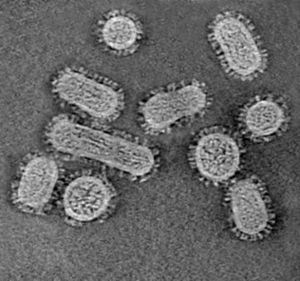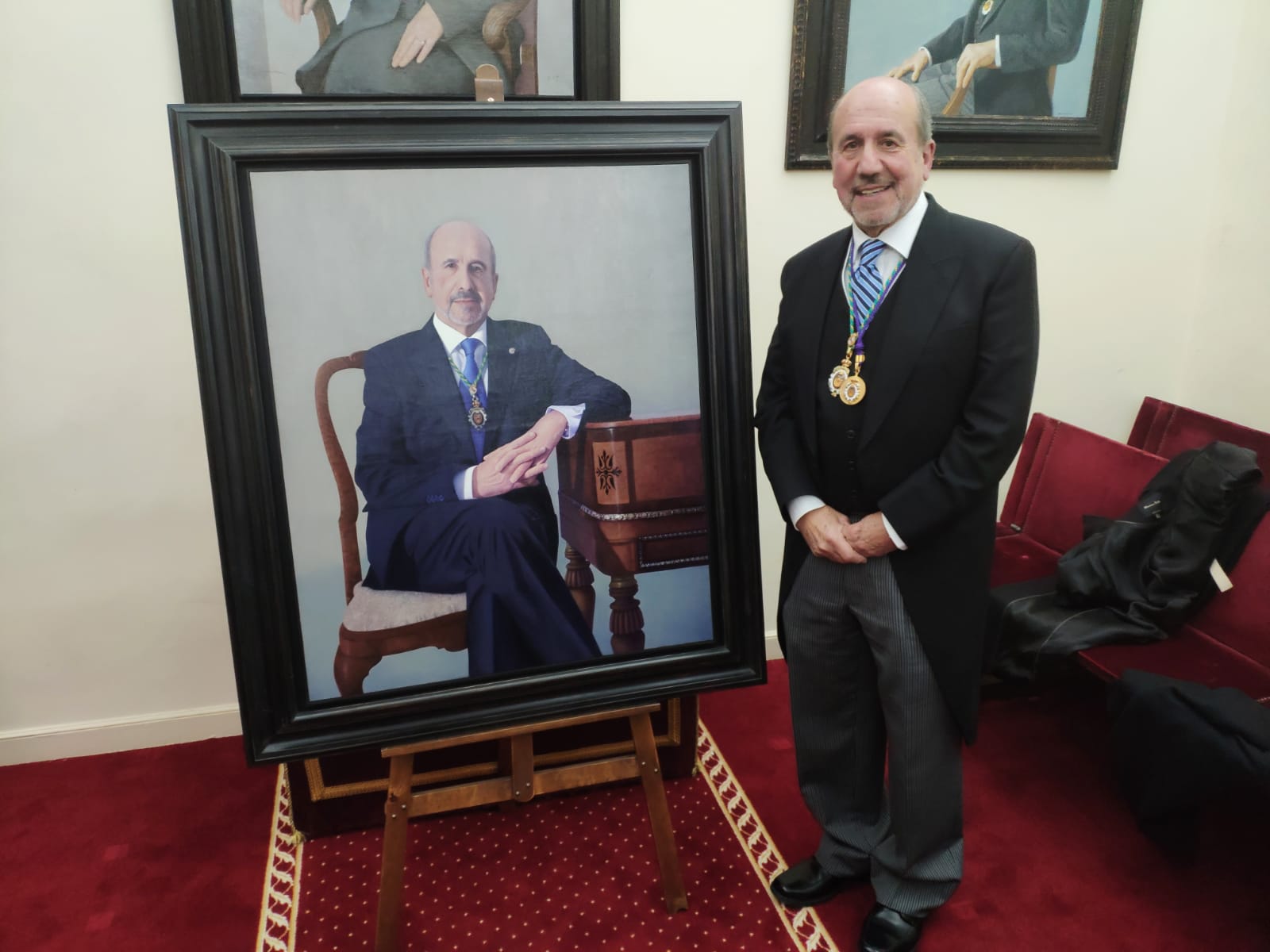
Abierto el plazo de solicitud de las Becas JAE de Introducción a la Investigación para estudiantes universitarios
Nueva convocatoria para solicitar becas JAE de Introducción a la Investigación en centros del CSIC. Las 250 becas ofertadas becas están orientadas a estudiantes universitarios, especialmente aquellos en el último curso de grado universitario y tendrán una duración de 5 meses consecutivos, iniciándose en septiembre u octubre de 2020.
El plazo de presentación de solicitudes se ha vuelto a abrir y termina el 10 de junio (incluido)
El Centro Nacional de Biotecnología recibirá 11 estudiantes en el curso 2020-2021
16 de JULIO 2020: RESOLUCION DEFINITIVA publicada en la página del CSIC
Investigadores del CSIC demuestran que un fármaco contra el mieloma logra frenar un coronavirus humano
-
Un equipo del CNB-CSIC ha demostrado ‘in vitro’ que el fa´rmaco plitidepsina bloquea la multiplicación del coronavirus humano HCoV-229E
-
Los investigadores probarán ahora la eficacia del fármaco contra un coronavirus SARS, similar al nuevo virus que causa la enfermedad Covid-19
Investigadores del Consejo Superior de Investigaciones Científicas (CSIC) han demostrado in vitro que el fármaco Aplidin (plitidepsina), descubierto por la farmacéutica española PharmaMar, y usado para tratar el mieloma, logra frenar la multiplicación del coronavirus HCoV-229E, que pertenece a la familia del nuevo coronavirus que ha provocado una pandemia. Ahora, los investigadores van a estudiar si este fármaco es efectivo también contra el coronavirus SARS, muy similar al SARS- CoV-2 que causa la enfermedad Covid-19. “Es un resultado prometedor”, apunta el virólogo Luis Enjuanes, que dirige junto a Isabel Sola el laboratorio de coronavirus del Centro Nacional de Biotecnología (CNB-CSIC), en Madrid.
El CNB recibe más de 4 millones de euros para investigar el coronavirus SARS-CoV-2
Descubierto el mecanismo por el cual el virus de la gripe se multiplica eficientemente
Un estudio evolutivo muestra que las oxilipinas son clave en la tolerancia térmica de las plantas
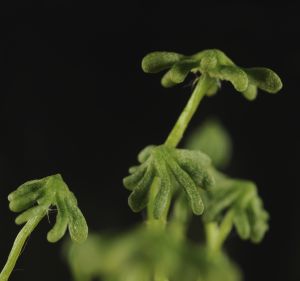
- La tolerancia a temperaturas altas fue clave en la conquista de la tierra por las plantas
- Hormonas de la familia de las oxilipinas se conservan en plantas muy distantes evolutivamente y tuvieron un papel esencial en la colonización terrestre
- Los investigadores prevén un papel crítico de estas hormonas en la adaptación de las especies frente al cambio climático
Madrid 5 de marzo 2020, CNB-CSIC. Las oxilipinas son una familia de hormonas vegetales presentes en todas las plantas terrestres y algunas algas, con funciones en defensa vegetal.
La revista Current Biology publica hoy los resultados de un estudio evolutivo de genómica comparativa que identifica una función ancestral de las oxilipinas común a todas las plantas. El estudio utiliza especies muy distantes evolutivamente, como son el alga Klebsormidium nitens, el briófito Marchantia polymorpha y la planta vascular Arabidopsis thaliana. El trabajo, del grupo del investigador Roberto Solano en el Centro Nacional de Biotecnología perteneciente al Consejo Superior de Investigaciones Científicas (CNB-CSIC), ha descubierto que la función original de las oxilipinas en cualquier planta es la activación de mecanismos de toleración de estrés térmico.
Identificado un nuevo mecanismo que regula la intensidad y duración de la respuesta inmune en plantas
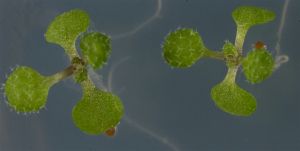
- La regulación de la señalización mediada por ácido jasmónico es clave para mantener el equilibrio entre crecimiento y defensa
- Las proteínas BPM regulan la degradación de los factores de transcripción que activan la respuesta inmune.
La supervivencia de las plantas en la naturaleza requiere su adaptación a diferentes tipos de estrés medioambiental. A diferencia de los animales, las plantas no tienen posibilidad de escapar cuando se enfrentan a una agresión externa como la mordedura de un insecto. Por este motivo, han desarrollado mecanismos de señalización interna y respuesta a través de hormonas como el ácido jasmónico. Sin embargo, la respuesta desencadenada por esta hormona frena el crecimiento de la planta para centrar los recursos en la defensa. Así, un exceso de acción de esta hormona puede afectar al desarrollo vegetal, por lo que su señalización debe estar regulada de una manera muy precisa en tiempo e intensidad.
Ahora, investigadores del Centro Nacional de Biotecnología (CNB) pertenecientes al Consejo Superior de Investigaciones Científicas (CSIC) en colaboración con las universidades de Estrasburgo y Navarra han identificado un nuevo mecanismo molecular que modula los pulsos de activación de la hormona. El trabajo, que ha sido publicado en la revista Proceedings of the National Academy of Sciences (PNAS), da respuesta a cómo se regula la activación de defensas hasta alcanzar un equilibrio entre crecimiento y respuesta a estrés.
Nueva edición del curso: La biotecnología ante los retos de la sociedad actual
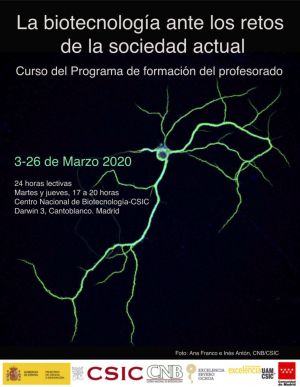
CANCELADO
Debido al bajo número de solicitantes, se ha cancelado la realización del curso en el año 2020
El Centro Nacional de Biotecnología (CNB) del CSIC organiza un Curso de Formación del Profesorado, titulado “La biotecnología ante los retos de la sociedad actual”, destinado a profesores y catedráticos de enseñanza secundaria de la Comunidad de Madrid. En este curso multidisciplinar hablaremos del vertiginoso progreso del área de la biotecnología y de cómo está contribuyendo al bienestar de los ciudadanos. Contaremos con la participación de investigadores de prestigio internacional y reconocidos comunicadores científicos de nuestro instituto. El programa, ponentes y procedimiento de inscripción están aquí
Conscientes del interés que los avances científicos y tecnológicos suscitan en la sociedad, y del papel fundamental de los docentes en su transmisión a las nuevas generaciones, queremos con este contribuir a vuestra formación continua y a la difusión de conocimientos sobre un tema de tanta relevancia para la sociedad del siglo XXI.
Información adicional sobre el CNB, los ponentes y sus líneas de investigación, puede consultarse en la web del centro
Bioimagen: el CNB mira al futuro de la microscopía
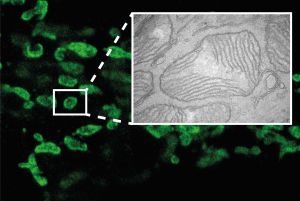
- Nace la plataforma Bioimagen, un proyecto que aúna las múltiples capacidades del CNB en el campo de la microscopía.
- El programa de Excelencia Severo Ochoa, clave para establecer la nueva plataforma de Bioimagen en el CNB.
Gracias al apoyo del programa de Excelencia Severo Ochoa, el Centro Nacional de Biotecnología (CNB-CSIC) ha sido capaz de fortalecer las infraestructuras de microscopía disponibles en el centro. La adquisición de nuevos equipos como microscopios ópticos avanzados y electrónicos de alta resolución van a permitir implementar nuevos enfoques utilizando técnicas de microscopía integradora y correlativa. De esta forma, se podrá abarcar un mayor rango de escalas y resoluciones múltiples, desde la anatomía macroscópica hasta el nivel unicelular, molecular y atómico. La estrecha colaboración entre los servicios de microscopia óptica avanzada, microscopía y criomocroscopía electrónica servirá de sinergia para el desarrollo de nuevas técnicas de microscopía correlativa en el CNB.
La nueva Unidad de Análisis de Datos de Bioimagen servirá para resolver los desafíos matemáticos necesarios para el procesamiento de datos procedentes de experimentos de imágenes de molécula única, microscopía óptica y electrónica. Además, el Centro de procesamiento de imágenes criogénicas de Instruct, la única instalación española perteneciente a INSTRUCT, la red europea de instalaciones de biología estructural, brinda apoyo continuo al procesamiento de datos de criomicroscopía.
Looking at Cell Biology From a Virus Perspective: A tribute to Amelia Nieto on her retirement
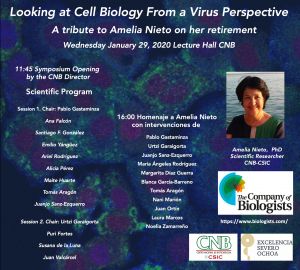
Next Wednesday 29th of January, The CNB will host a simposium to honour Amelia Nieto, a CNB researcher from the origins of the center.
For her retirement, several researchers who initiated their scientific career in her group are visiting the CNB to celebrate the meeting "Looking at Cell Biology from a virus perspective".
This event count with speakers such as Maite Huarte, Tomás Aragón and Puri Fortes from the Centro de Investigaciones Médicas Aplicadas (CIMA) din Pamplona; Juan Varcarcel and Susana de la Luna from the Centre Reserca Genòmica (CRG) in Barcelona; aSantiago F. González from the Università della Svizzera in Bellinzona and Emilio Yángüez from the Functional Genomic Service at ETH in Zurich will join the .
This meeting is supported by The Company of Biologist through their Small Meeting Grant program.
Attendance is free
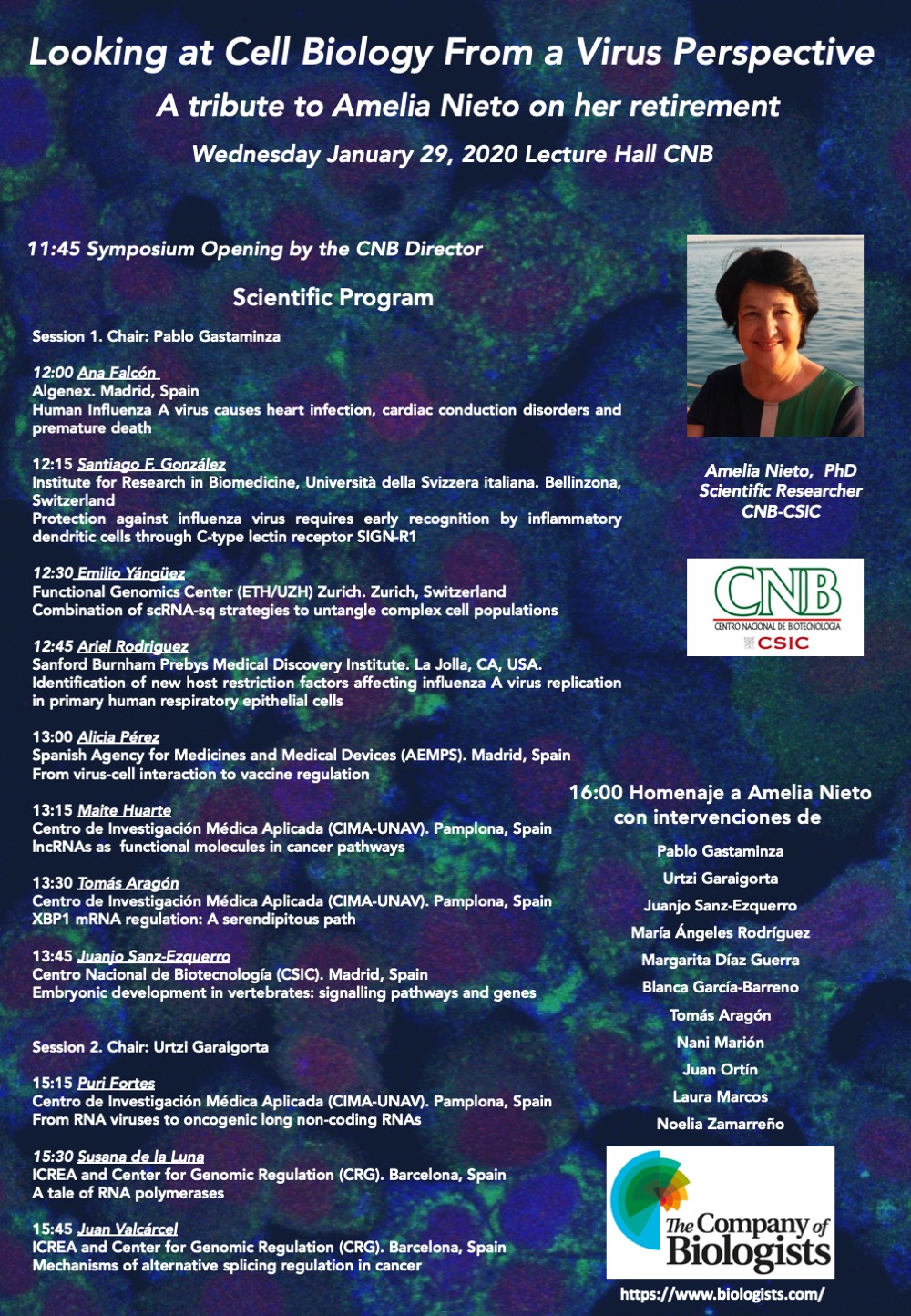
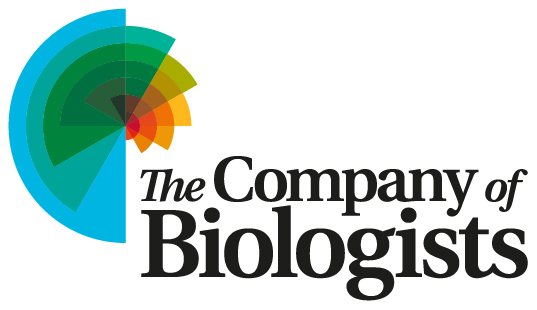
The National Royal Academy of Pharmacy awards Mariano Esteban and Carmen Gómez
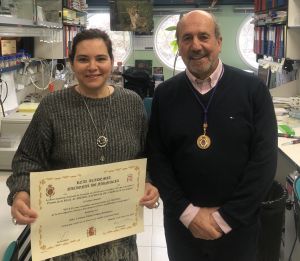
- Carmen Elena Gómez receives the Research Prize from the National Royal Academy of Pharmacy (RANF)
- Mariano Esteban receives the Carracido Gold Medal for his scientific and academic career
Carmen Elena Gómez, researcher at the Molecular and Cellular Biology Department received (ex aequo) the Research Prize from the Real Academia Nacional de Farmacia (RANF). The award ceremony took place in the Academia the 15th of January 2020. 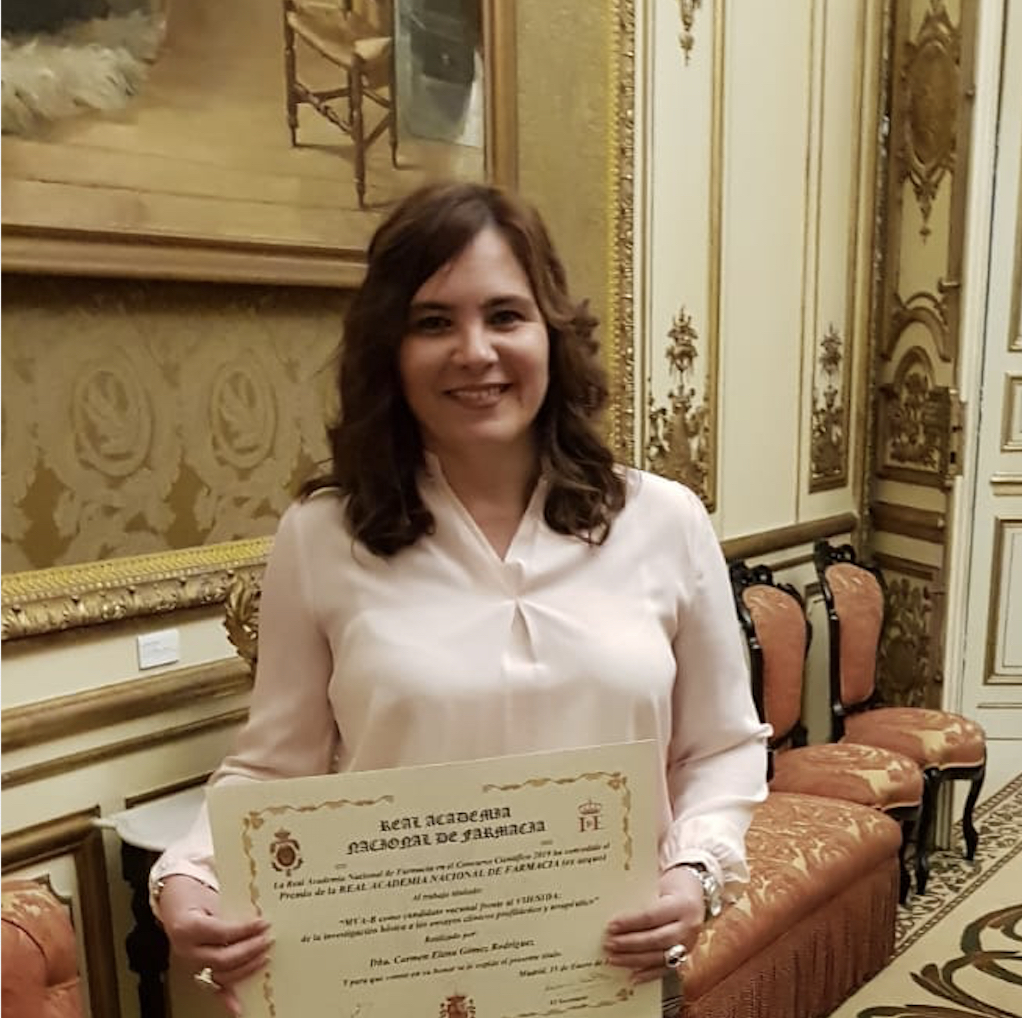
This award recognises the research work “MVA-B as a model vaccine candidate against VIH/SIDA: From basic research to prophylactic and therapeutic clinical trials ”. Carmen Gómez explains "this review is focused in the Ankara modified version of vaccinia virus, collects our main contributions from the basic knowledge of the MVA vector biology, both in vitro and in vivo, to its evaluation as a vaccine candidate against HIV/AIDS in clinical trials. The work details the generation and characterization of the recombinant vector called MVA-B and the preclinical data that supported the evaluation of MVA-B as the first prophylactic and therapeutic vaccine against HIV-1 tested in humans in Spain. In addition, they assess the results of clinical trials and future lines of research on which to work considering the latest scientific advances in the field of vaccines against HIV.
In addition, professor Mariano Esteban has been distinguished with the Gold version of the Carracido Medal for his scientific and academic career, the highest award granted by the RANF. The award ceremony of the Carracido medal took place on Thursday, January 16th. In the act, he read his speech focused in "Vaccines as a disease control system: Where we are and where we are going". Afterwards, a painting by the Cantabrian Ricardo Sanjuán has been discovered to emphasize the work of Mariano Esteban as former President of the RANF (2013-2019)
COOKIES POLICY
A cookie is a text file that is stored on your computer or mobile device via a web server and only that server will be able to retrieve or read the contents of the cookie and allow the Web site remember browser preferences and navigate efficiently. Cookies make the interaction between the user and the website faster and easier.
General information
This Website uses cookies. Cookies are small text files generated by the web pages you visit, which contain the session data that can be useful later in the website. In this way this Web remembers information about your visit, which can facilitate your next visit and make the website more useful.
How do cookies?
Cookies can only store text, usually always anonymous and encrypted. No personal information is ever stored in a cookie, or can be associated with identified or identifiable person.
The data allow this website to keep your information between the pages, and also to discuss how to interact with the website. Cookies are safe because they can only store information that is put there by the browser, which is information the user entered in the browser or included in the page request. You can not run the code and can not be used to access your computer. If a website encrypts cookie data, only the website can read the information.
What types of cookies used?
The cookies used by this website can be distinguished by the following criteria:
1. Types of cookies as the entity that manages:
Depending on who the entity operating the computer or domain where cookies are sent and treat the data obtained, we can distinguish:
- Own cookies: are those that are sent to the user's terminal equipment from a computer or domain managed by the editor itself and from which provides the service requested by the user.
- Third party cookies: these are those that are sent to the user's terminal equipment from a machine or domain that is not managed by the publisher, but by another entity data is obtained through cookies.
In the event that the cookies are installed from a computer or domain managed by the editor itself but the information collected by these is managed by a third party can not be considered as party cookies.
2. Types of cookies as the length of time that remain active:
Depending on the length of time that remain active in the terminal equipment can be distinguished:
- Session cookies: cookies are a type designed to collect and store data while the user accesses a web page. Are usually used to store information that only worth preserving for the service requested by the user at any one time (eg a list of products purchased).
- Persistent cookies: cookies are a type of data which are stored in the terminal and can be accessed and treated for a period defined by the head of the cookie, and can range from a few minutes to several years.
3. Cookies types according to their purpose:
Depending on the purpose for which the data are processed through cookies, we can distinguish between:
- Technical cookies: these are those that allow the user to navigate through a web page or application platform and the use of different options or services it exist as, for example, control traffic and data communication, identify the session, access to restricted access parts, remember the elements of an order, make the buying process an order, make an application for registration or participation in an event, use security features while browsing store content for dissemination videos or sound or share content via social networks.
- Customization cookies: these are those that allow the user to access the service with some general characteristics based on a predefined set of criteria in the user terminal would eg language, the type of browser through which you access the service, the locale from which you access the service, etc.
- Analysis cookies: they are those that allow the responsible for them, monitoring and analyzing the behavior of users of the web sites that are linked. The information gathered through such cookies are used in measuring the activity of web sites, application or platform and for the profiling of user navigation of such sites, applications and platforms, in order to make improvements function data analysis how users use the service.
Management tool cookies
This Website uses Google Analytics.
Google Analytics is a free tool from Google that primarily allows website owners know how users interact with your website. Also, enable cookies in the domain of the site in which you are and uses a set of cookies called "__utma" and "__utmz" to collect information anonymously and reporting of website trends without identifying individual users..
For statistics of use of this website use cookies in order to know the level of recurrence of our visitors and more interesting content. This way we can concentrate our efforts on improving the most visited areas and make the user more easily find what they are looking for. On this site you can use the information from your visit for statistical evaluations and calculations anonymous data and to ensure the continuity of service or to make improvements to their websites. For more details, see the link below privacy policy [http://www.google.com/intl/en/policies/privacy/]
How to manage cookies on your computer: disabling and deleting cookies
All Internet browsers allow you to limit the behavior of a cookie or disable cookies within settings or browser settings. The steps for doing so are different for each browser, you can find instructions in the help menu of your browser.
If you decline the use of cookies, since it is possible thanks to the preferences menu of your browser or settings, reject, this website will continue to function properly without the use of the same.
Can you allow, block or delete cookies installed on your computer by setting your browser options installed on your computer:
- For more information about Internet Explorer click here.
- For more information on Chrome click here.
- For more information about Safari click here.
- For more information about Firefox click here.
Through your browser, you can also view the cookies that are on your computer, and delete them as you see fit. Cookies are text files, you can open and read the contents. The data within them is almost always encrypted with a numeric key corresponding to an Internet session so often has no meaning beyond the website who wrote it.
Informed consent
The use of this website on the other hand, implies that you paid your specific consent to the use of cookies, on the terms and conditions provided in this Cookies Policy, without prejudice to the measures of deactivation and removal of cookies that you can take, and mentioned in the previous section.

